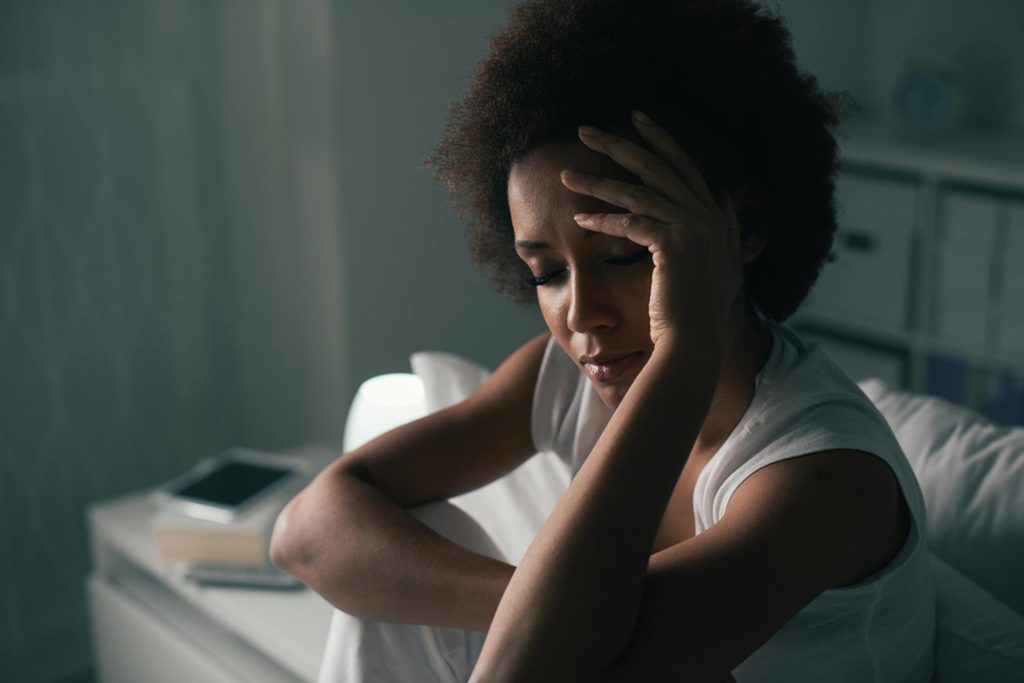Here’s Why You’re More Tired Than Ever, According to a New Study
Updated: Aug. 21, 2017
Three words: Game Of Thrones. This is the downside to your Netflix addiction.
 When you’re deep in a binge-watch of your favorite Netflix series it can be hard to imagine pressing pause. Whether we’re spending a rainy day indoors catching up on your favorite drama or planning a night in with friends to watch any of these classics on Netflix, we’ve all had that moment where we just can’t seem to pull ourselves away from the screen. Previous studies say there’s nothing wrong with a little extra time in front of the TV, but new research begs to differ. If you’re spending each night tossing and turning or you’re reaching for an extra cup of coffee to get through the day, Netflix might be the reason.
When you’re deep in a binge-watch of your favorite Netflix series it can be hard to imagine pressing pause. Whether we’re spending a rainy day indoors catching up on your favorite drama or planning a night in with friends to watch any of these classics on Netflix, we’ve all had that moment where we just can’t seem to pull ourselves away from the screen. Previous studies say there’s nothing wrong with a little extra time in front of the TV, but new research begs to differ. If you’re spending each night tossing and turning or you’re reaching for an extra cup of coffee to get through the day, Netflix might be the reason.
In research from the University of Michigan and the Leuven School for Mass Communication Research in Belgium, experts report that excessive binge-watching can cause poor sleep quality and increased fatigue and insomnia, while normal television viewing does not. Study authors point out that the phenomenon known as binge-watching (marathon viewing) is on the rise here in America, as more households embrace the use of streaming services and digital recording devices.
For the study, researchers surveyed 423 adults between the ages of 18 to 25. Eighty-one percent of those surveyed reported binge-watching, with nearly 40 percent saying they binge-watched the month before the study, and 28 percent saying that had a few times. Almost 7 percent of those surveyed reported binge-watching every day during the previous month. Women reported double the binge-watching of men.
In addition to reporting on their viewing habits, participants were asked about sleep quality, fatigue, and insomnia, as well as the frequency of binge-watching programs on a TV, laptop, or desktop computer for the previous month, EurekAlert reports. Most participants said they slept an average of 7 hours and 37 minutes each night, but binge-watchers reported experiencing more fatigue and poorer sleep quality.
According to study co-author Liese Exelmans, the study participants might meet the required seven to nine hours of sleep each night, but that doesn’t mean the quality of their sleep is high. She notes that many of the participants are students with flexible daytime schedules and can compensate for late night TV-watching by sleeping in.
The reason binge-watchers have trouble falling asleep or don’t sleep as well can be tied to their viewing habits. All that screen time right before bed is increasing cognitive arousal and causing an increase in mental alertness, researchers said.
“Bingeable TV shows have plots that keep the viewer tied to the screen,” Exelmans said to EurekAlert. “We think they become intensely involved with the content, and may keep thinking about it when they want to go to sleep.”
When you watch these exciting, suspenseful shows before you go to bed, it can cause your heart to race and trigger physiological arousal that delays the onset of sleep. Exelmans says the high energy and drama of our favorite series put our brains on high alert and cause us to need a longer period of cooling down before sleep. This in turn causes a decrease in sleep quality overall.
Binge-watching happens even with the best of intentions. Viewers may say that they’ll only watch one more episode, but they often end up doing otherwise because they’re so absorbed in the program, according to the study findings.
With insomnia occurring so frequently, the study authors hope this research could be the answer for someone wondering why they’re feeling so tired during the day. “Basically, sleep is the fuel your body needs to keep functioning properly,” Exelmans said. “Based on that research, it’s very important to document the risk factors for poor sleep. Our research suggests that binge viewing could be one of this risk factors.”
If Netflix isn’t the cause for your sleepless nights, here are some other causes of insomnia to consider.
